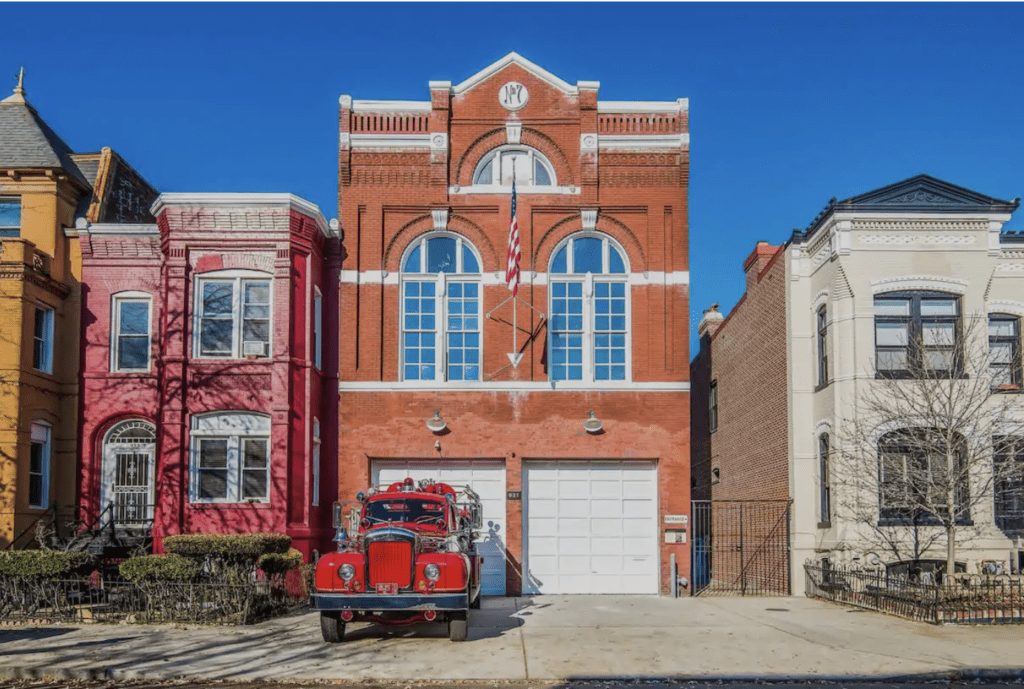New District Rules May Curtail Airbnbs
By • December 27, 2021 0 2479

The multitude of home owners and renters who have been renting out their dwellings to high-paying weekend and short-term visitors as so-called “Airbnbs,” will face far stricter regulations in 2022. The impact of the new rules passed by the D.C. Council in 2018 but just released as final rules by the District Consumer and Regulatory Affairs Agency, will certainly curtail the operation of many if not a majority of the Airbnbs that have sprung up in the District over the past ten years.
The new rules require that in order to rent out a property for less than 30 days, it needs to be the primary residence lived in and owned by the individual renting it out. In addition, for a short-term rental to be legal, the owner must continue to live in the rental property — the host remains present throughout the guests’ stay. Under these conditions, there’s no limit to the number of days rooms on the property can be rented out.
The rules make a distinction for “vacation” rentals that are the vast majority of Airbnb bookings. They do not require the host to be present and can be run by professional managers. But they cannot be rented out for more than 90 days a year. Experts who have followed the evolution of Airbnbs in the District believe that most of the Airbnb hosts in D.C. will be unable to meet these requirements.
The Airbnb movement evolved quickly and way beyond the original concept that is ubiquitous in promotional materials according to Georgetown resident and local blogger Christopher Matthews – that “Airbnbs offer a way for homeowners to welcome guests into their home for unique experiences. A good proportion if not most Airbnbs are second homes and even investment properties purposely bought to be short-term rentals.
Over the past ten years, it is the rare residential neighborhood where a property owner and not rarely, lessees of single-owner homes, second-homes and even rooms, don’t occasionally and sometimes often rent a portion or all of the property out to temporary visitors, tourists and business travelers. During college homecoming and graduation times, Georgetown areas’ residential parking places are increasingly full of SUVs with out-of-town license plates; quiet empty neighborhood houses suddenly are full of young sometimes noisy and partying youths.
During pre-pandemic times, the travel landscape saw a boom in short-term and temporary rentals. Middle- and lower-income owners and even student renters, would move to a friend’s house for a weekend or a month to make hundreds of dollars renting their abode to strangers for a short time. With heated earnings on Airbnbs in 2017 and 2018, it was clear that Airbnbs had become an important source of income for some home owners and renters in D.C. But increasingly the District saw developers convert entire condo and apartment buildings into temporary rental investments, complete with specialty cleaning crews, decorators and public relations teams in an increasingly competitive market. “In 2018, around 6,300 D.C. hosts welcomed a total of 517,500 guests via Airbnb,” the DCRA reported, “The average Airbnb host in the District of Columbia earns approximately $10,000 per year, totaling almost $100 million.”
With the growth of short-term lucrative rentals by private owners and developers, however, came an increase in complaints about lack of parking places, noise and a change in stable neighborhood atmospheres. Weekend Airbnbs were seen as impacting the availability of temporary housing especially for D.C.’s many students, consultants, conference-goers and international workers on high tech visas. In 2018 the city passed new regulations.
“It does seem that a lot of the properties will not be in compliance once the rules go into effect,” Matthews wrote on his blog the Georgetown Metropolitan on Dec. 7. “But will enforcement follow? In the past … the city only cracked down on properties that were getting used as party houses. Will it continue this approach? Time will tell.”

